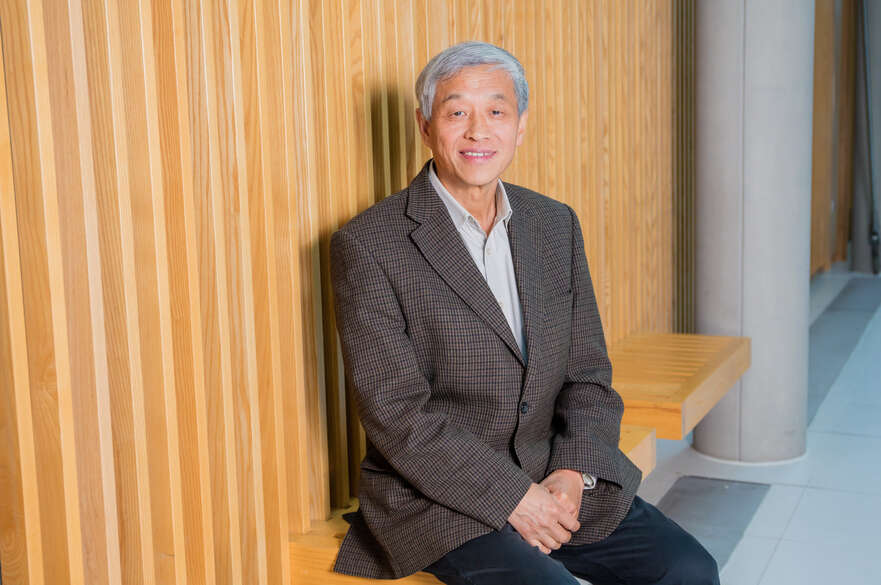NTU part of major research project to give electric vehicle batteries a ‘second life’
Nottingham Trent University (NTU) is part of a £4.5 million research project to establish a process to recycle or reuse electric vehicle batteries to help prevent up to nine million tons of battery waste per year going to landfill.
By Chris Birkle | Published on 28 February 2023
Categories: Press office; Research; School of Architecture, Design and the Built Environment;

Nottingham Trent University (NTU) is part of a £4.5 million research project to establish a process to recycle or reuse electric vehicle batteries to help prevent up to nine million tons of battery waste per year going to landfill.
A £582,000 grant has been awarded to the university’s Advanced Design and Manufacturing Engineering Centre (ADMEC) as part of the European-wide REBELION project which looks to give used electric vehicle Lithium-ion batteries a ‘second life’ or recycle them in a more efficient way.
Research shows that with reconditioning, the majority of electric vehicle batteries would be able to last another ten years after their capacity has fallen below 75 per cent. But the majority of Lithium-ion batteries in general are sent to landfill or incinerated and many of the first generation electric vehicles will soon reach their end of life.
The project – which is supported by the European Horizon programme and incorporates 11 organisations from across Europe – will also establish how recycling electric vehicle batteries could create a major source of Lithium-ion on the continent.
The main aims of the project include developing:
- Technology to sort used batteries into those suitable for a ‘second life’ and those which should be recycled
- Automated methods to dismantle batteries so that they can be recycled more efficiently
- A safety protocol for the recycling and reusing process and designing safety box containers for safe battery transportation and storage
- A standardised labelling system to provide data on second life batteries
- An analysis of how well the proposed models of recycling and repurposing perform
- A roadmap to the market for individual and joint business models
The NTU team will develop the information communication technology (ICT) platform and infrastructure. The team will also develop methods in relation to traceability of batteries, digital battery passports, ecolabelling and the calculation of eco-cost and eco-savings. The team will also contribute to repurposing second life batteries in lighting products.

Professor Daizhong Su
Partners in the project include Universitat Politechnica de Valenica, Accurec-Recycling, Sig de Raee Y Pilas Sociedad Limitada, Ona Product SL, Universidad Nacional de Educacion a Distancia, University of Birmingham, Fondazione Icons, Erion Energy, Erion Compliance Organization Scarl and Volkswagen Group Italia SPA.
Professor Daizhong Su, Head of ADMEC which sits in NTU’s School of Architecture, Design and the Built Environment (ADBE) said: “With the increased volume of electric vehicle batteries coming towards their end of life, it’s imperative that there’s a quick and accurate way to predict a battery’s future life in order to maximise second-life applications.
“Recycling is the most environmentally-friendly way to deal with batteries after their second life and has the potential to turn them into a major economic resource in Europe, with a value of up to £23 billion per year, as the raw materials they contain can be used for further manufacturing.
“This is an exciting project which has the potential to make the electric vehicle industry even more sustainable and help prevent up to nine million tons of battery waste per year going to landfill by 2040. We look forward to working with our partners to help create sustainable solutions for many of the future challenges of the electric vehicle industry.”
Notes for Editors
Press enquiries please contact Chris Birkle, Public Relations Manager, on telephone +44 (0)115 848 2310, or via email.
Nottingham Trent University (NTU) received the Queen’s Anniversary Prize for Higher and Further Education in 2021 for cultural heritage science research. It is the second time that NTU has been bestowed the honour of receiving a Queen’s Anniversary Prize for its research, the first being in 2015 for leading-edge research on the safety and security of global citizens.
The Research Excellence Framework (2021) classed 83% of NTU’s research activity as either world-leading or internationally excellent. 86% of NTU’s research impact was assessed to be either world-leading or internationally excellent.
NTU was awarded The Times and The Sunday Times Modern University of the Year 2023 and ranked second best university in the UK in the Uni Compare Top 100 rankings (2021/2022). It was awarded Outstanding Support for Students 2020 (Times Higher Education Awards), University of the Year 2019 (Guardian University Awards, UK Social Mobility Awards), Modern University of the Year 2018 (Times and Sunday Times Good University Guide) and University of the Year 2017 (Times Higher Education Awards).
NTU is the 5th largest UK institution by student numbers, with approximately 40,000 students and more than 4,400 staff located across five campuses. It has an international student population of 7,000 and an NTU community representing over 160 countries.
Since 2000, NTU has invested £570 million in tools, technology, buildings and facilities.
NTU is in the UK’s top 10 for number of applications and ranked first for accepted offers (2021 UCAS UG acceptance data). It is also among the UK’s top five recruiters of students from disadvantaged backgrounds and was the first UK university to sign the Social Mobility Pledge.
NTU is ranked 2nd most sustainable university in the world in the 2022 UI Green Metric University World Rankings (out of more than 900 participating universities).